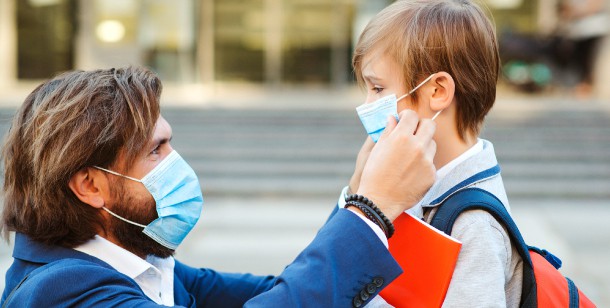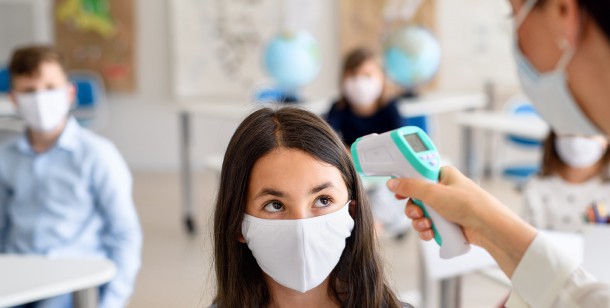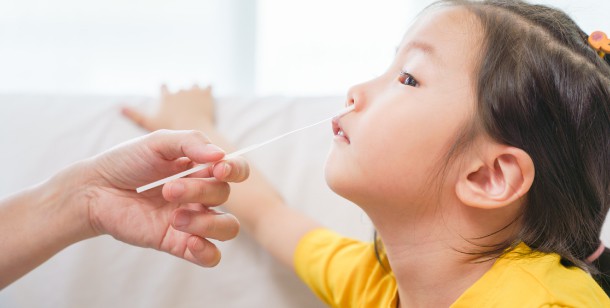August is in full swing, and that means that parents across the country are preparing to send their kids back to school. And while it’s exciting to be able to send our children to learn in person again, many parents still have concerns keeping their kids healthy throughout the new school year. With rising concerns about the coronavirus pandemic, parents are looking for ways to protect their child as they return to the classroom. If you’re concerned about the safety of your child, keep reading for more about back to school health tips for parents.

Is It Safe to Send Your Child Back to School?
After a year of remote learning, many parents are unsure where or not to send their children back to school for in-person learning. This is especially true if people in your community do not observe coronavirus precautions or if your child is not old enough to receive the vaccine. Because these variables are out of your control, there is no easy answer to whether it’s safe to send your child back to school. But that doesn’t mean you can’t take precautions to keep your child as safe as possible in the classroom.

Healthy Back to School Habits for Kids
Check out these back to school health tips for parents to observe in order to keep your child healthy:
1. Vaccinate your child
Currently, all adults and children over age 12 are able to receive the COVID-19 vaccines. If your child is old enough, it’s important that they are fully vaccinated by the start of the school year. This is the best way to protect your child from contracting a serious case of the virus.
2. Have them wear face masks
Convincing children to keep their masks on all day is a difficult task, especially when dealing with younger children. However, wearing a mask is a proven way to prevent the spread of the virus. Even if your child’s school does not require students to wear masks, you should sit them down and explain the necessity of this step.
3. Practice social distancing
Social distancing may prove difficult in a crowded school setting, but students should remain at least 3 feet apart whenever possible.
4. Pack lunch for them
Waiting in the lunchline presents an unnecessary opportunity for the spread of the virus. Not only are children less likely to wear their masks while waiting for their food, but it lessens the likelihood that someone with the virus will be directly handling your child’s food. By packing their lunch, you limit the likelihood that the virus will be spread through their food, and also encourage social distancing.
5. Learn what measures the school is taking
Before sending your child back to school, learn what you can about the measures that the school is taking to ensure your child’s safety. From temperature checks and allowing students to eat lunch at their desks to limiting movement between classrooms, these are all ways schools can do their part in stopping the spread amongst their students and staff.
6. Conduct temperature checks
Many schools will conduct these temperature checks before children enter the building each day, but it never hurts to do your own check at home just to be safe. Monitor your student’s health and be sure to keep them home if they exhibit a fever or contract any other coronavirus symptoms, even if it means missing days of school.
7. Get your child tested
The CDC recommends that children who have not been fully vaccinated be tested before school starts and as needed when there are higher levels of cases in the community. Even if your child has been vaccinated, it may be in the best interest of the school to have all children tested before sending them to class.
8. Purchase easily cleaned school supplies
While it’s not feasible to throw away your student’s notebook after they use it, you can make sure that you are purchasing school supplies that can be easily cleaned. When shopping for the school year, both high school age and younger children will benefit from frequently disinfected supplies. Choose a backpack that can be thrown in the washer or binders that can withstand disinfectant wipes!
9. Maintain healthy habits
It’s important that parents instill healthy habits in their children, especially when living through a pandemic. Starting at a young age, feeding your children fruits and vegetables, establishing a bedtime routine, supporting behavioral health and mental health, and encouraging physical activity are essential. This will help keep your child’s immune system going strong!

When to Take Your Child to the Doctor or Emergency Room
Even if you try your best to have your child practice healthy school habits, there is still a chance that your child will become infected with the coronavirus. However, the precautionary steps from our back to school health tips for parents can help you be prepared. If you suspect that your child is sick or know that they have come in contact with someone who is infected with the virus, take them to see a healthcare specialist. Depending on the severity of their symptoms (if they are exhibiting any) you may need to seek emergency treatment. Visit an emergency room near you to get emergency treatment or receive a COVID-19 test today.
